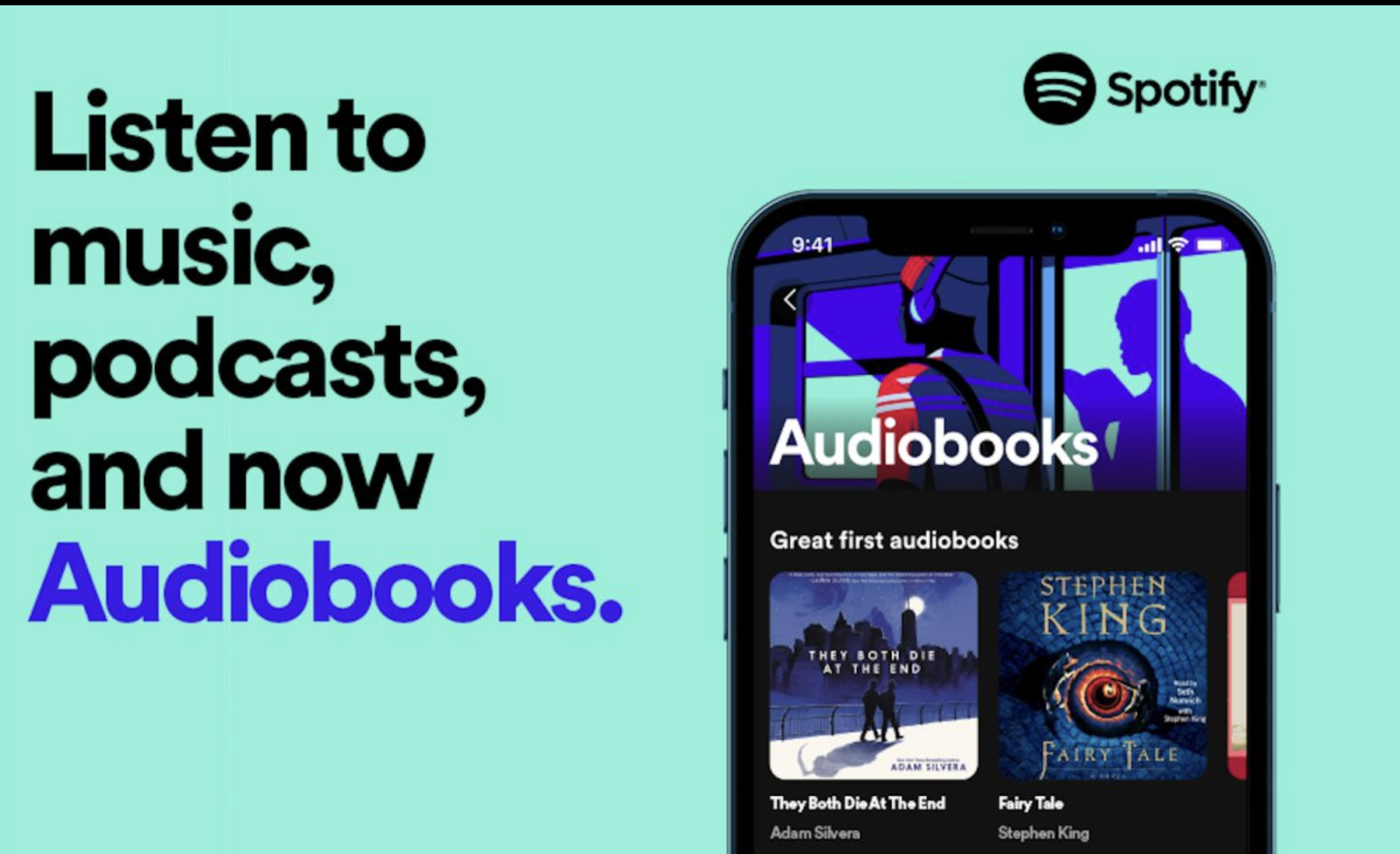Earlier this week, Spotify released data suggesting that audiobooks are proving successful for the platform, at least in terms of attracting listeners. Since its launch of audiobook streaming in the U.S. last fall, the company said that one-quarter of Spotify Premium users have “engaged” with audiobooks. (The company has 602 million monthly active users worldwide, 236 million of which are paying subscribers; it does not offer specific data for the U.S. market.) Audiobooks have also been particularly popular among younger listeners, with users aged 18-34 accounting for 57% of Spotify’s audiobook listeners.
These new audiobook listeners are also spending more time on Spotify in general, the company said, with audiobook listeners spending 2.6 hours of additional listening time on the platform within the first two weeks of starting an audiobook. This, said the company, contributed to an increase of 8.15% in “overall consumption per user for the same period. This stat indicates that audiobook listeners are already heavy users of Spotify, having previously spent some 32 hours on the platform over a typical two-week period, or more than two hours a day.
The company also highlighted the growth in top-up purchases. Spotify said that these purchases, presumably made by audiobook listeners who, having run out of their allotted 15 hours of free audiobook listening, go on to purchase an audiobook outright, have “more than doubled quarter-over-quarter since the launch of the audiobooks.”
Spotify’s press release also stated that independent authors have benefitted from the introduction of audiobooks, and those who offer them through the platform, typically via Spotify’s Findaway Voices service, “have seen a 95% jump in their royalties.” However, the company did not provide specific details on the actual royalty amounts or what these authors had previously been paid, making this jump impossibly to quantify.
What is quantifiable is the impact that cross-promotion across different platforms is having on audiobook listening. The biggest impact has come following the release of TV and film adaptations of books. According to The Wrap, Spotify has seen an average increase of 470% in audiobook consumption of a given title in the week following the release of a book’s film or television adaptation. Recent popular titles have included James Clavell’s Shōgun, Cixin Liu’s The Three-Body Problem, and Patricia Highsmith’s The Talented Mr. Ripley, all of which were recently adapted for television. In addition, an author appearances on podcasts can also help with audiobook engagement. Spotify credited RuPaul’s appearance on Alex Cooper’s Call Her Daddy podcast with a 34% increase in consumption of his audiobook The House of Hidden Meaning the following week.
Spotify is continuing to invest in its audiobooks, having recently expanded to Canada, Ireland, and New Zealand, which will join the U.S., the U.K., and Australia in having access to audiobooks on the platform. It is widely anticipated that Spanish-language audiobooks, of which there are already several hundred available on Spotify in the U.S., is likely to prompt the company to expand its audiobooks service further international markets in the coming months.
